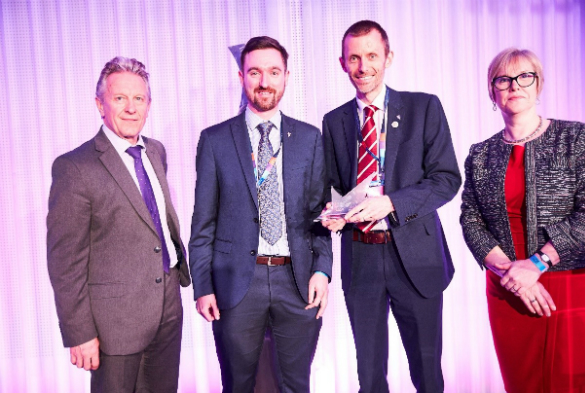
The University’s Small Animal Veterinary Surveillance Network (SAVSNET) has received a national award from the Biotechnology and Biological Sciences Research Council (BBSRC) in recognition of its innovative ‘big data’ research into animal and human diseases.
Professor Alan Radford and his team won the ‘Societal Impact’ category at the 2019 BBSRC Innovator of the Year awards. Now in their 11th year, the awards were held at the Science Museum in London on Wednesday 15 May and were presented by Professor Malcolm Skingle, Director of Academic Liaison, GlaxoSmithKline and Professor Melanie Welham, Executive Chair of BBSRC.
An independent industry led panel assessed their application and as category winners they received £10,000 along with their award.
SAVSNET is built on a network of veterinary practitioners and diagnostic laboratories across the UK supplying large volumes of electronic health data. These data are analysed by a multidisciplinary team of epidemiologists, computer scientists and microbiologists, and applied in innovative ways for which they were never originally designed.
Professor Alan Radford said “I’m honoured, humbled and flabbergasted to have won this award. But mostly thrilled to be able to recognise the work of all the members of our interdisciplinary team that together are making this innovation possible.
“Using a health informatics approach, we can now start to answer previously unanswerable questions of importance to practitioners, their patients and clients, as well as the wider human population. Our research is now beginning to help change the way pets are treated, from antibiotic use and resistance, to poisoning, vaccination and ticks”.
The Innovator of the Year awards recognise the full breadth of impacts that investments in research have, from the creation of spinout companies or social enterprises, to working in collaboration with business and working with policy makers, both in the UK and abroad.
Professor Andy Jones from the Institute of Integrative Biology was also shortlisted for the ‘International Impact’ category for his work on the Proteomics Standards Initiative, which aims to define community standards for data representation in proteomics.